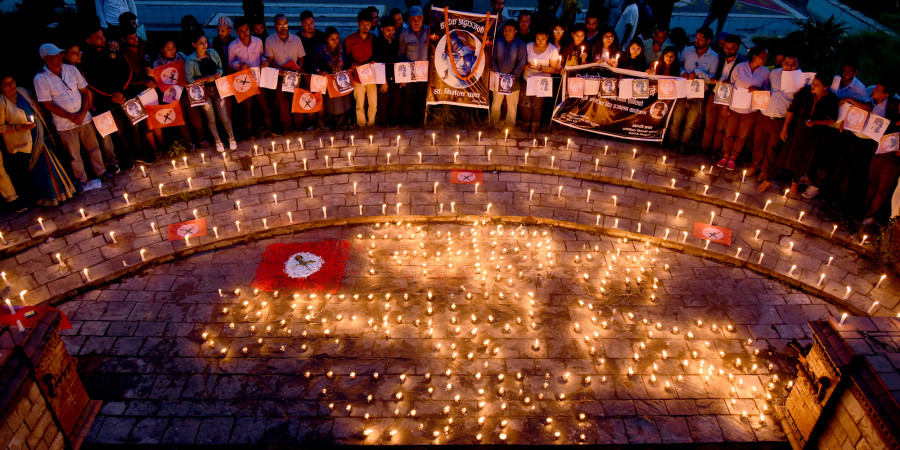National
National human rights body asks prime minister’s office—again—to report on the status of Nirmala Pant case
The rights watchdog had made 24-point recommendations in January for a fair and credible probe into the 13year-old’s rape and murder
Binod Ghimire
A year after the rape and murder of 13-year-old Nirmala Pant in Kanchanpur, officials in Singha Durbar point fingers at one another for the lack of progress in the investigation of the incident, which caused a nationwide outrage.
The National Human Rights Commission, after a study, had directed the Prime Minister’s Office on January 24 to implement the 24-point recommendations for a fair and credible investigation into the incident and report about the progress within three months. But with no reply even six months after the directive, the constitutional watchdog on Friday, coinciding with the first commemoration of Nirmala’s death, wrote to the PMO to immediately report on the latest developments in the investigation.
Govind Sharma Paudyal, a member of the commission, said they had to issue another directive as the PMO was reluctant to abide by their first correspondence.
Officials at the Office of the Prime Minister and Council of Ministers say they had forwarded the directives to the Ministry of Home Affairs and are unaware of the development.
Poshan Chandra Subedi, joint-secretary at the PMO, said they couldn’t respond to the human rights commission, in the lack of reporting from the ministry.
“We haven’t heard from the Ministry of Home Affairs yet. There’s nothing with us to report to the human rights commission,” he told the Post.
An expert team, led by former Joint-Attorney General Narendra Pathak with retired Deputy Inspector General of Nepal Police Bigyan Raj Sharma; forensic expert Harihar Wasti; and DNA expert Dinesh Jha as members, had studied the incident.
The 24-point recommendations were based on the team’s findings.
Officials at the Ministry of Home Affairs refused to comment on the matter. When asked why the ministry hasn’t reported to the PMO yet, Ram Krishna Subedi, spokesperson at the ministry, said that he was too busy and wouldn’t want to comment on the issue.
The human rights commission has a constitutional authority to direct or seek clarification from anyone, including the executive head of the country.
The 24-points recommendation asks the Prime Minister’s Office to set up a separate crime investigation department of experts, not to assign local police officials when investigating such incidents and ensure that the role of district attorney office is effective.
Ensuring the right to privacy during investigation and giving priority to the evidence-based investigation rather than to the statement-based probe, providing training officers on how to handle a crime scene, and ensuring that the media follows code of conduct while reporting on sensitive issues were the other recommendations of the commission.
The expert team had found several flaws on the part of local police when investigating Nirmala’s murder. Despite a complaint from Durga Pant, Nirmala’s mother, police showed no urgency to search for her, and only reached the crime scene after the teenager’s body was discovered by locals.
The report prepared by the team said the act of washing the victim’s trousers showed that police were insensitive when investigating the crime, they didn’t follow the right approach of evidence collection, and their only focus of investigation was the victim’s body. Police were found collecting pieces of clothes from the crime scene 22 days after the incident, which shows the height of insensitivity during the investigation, the report said.
***
What do you think?
Dear reader, we’d like to hear from you. We regularly publish letters to the editor on contemporary issues or direct responses to something the Post has recently published. Please send your letters to [email protected] with "Letter to the Editor" in the subject line. Please include your name, location, and a contact address so one of our editors can reach out to you.




 11.12°C Kathmandu
11.12°C Kathmandu














